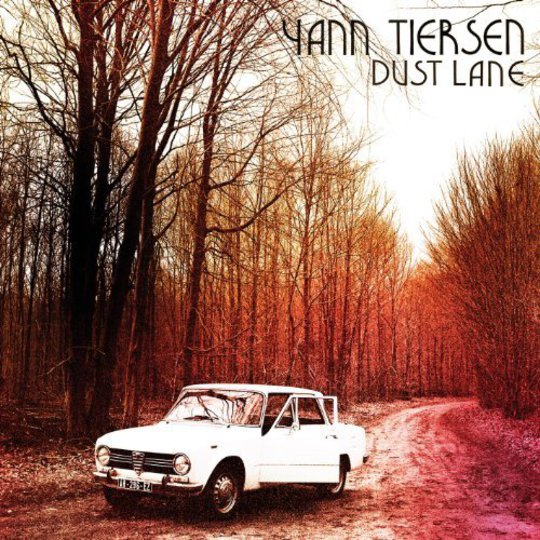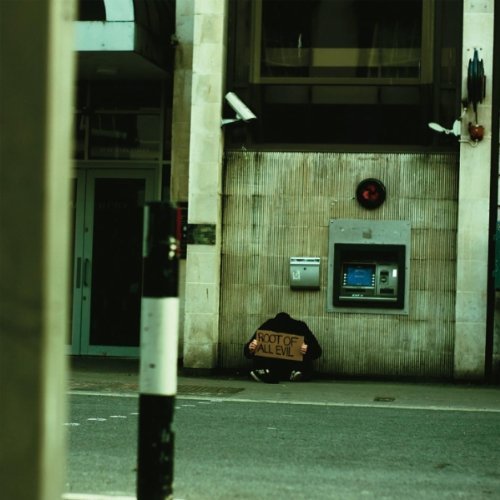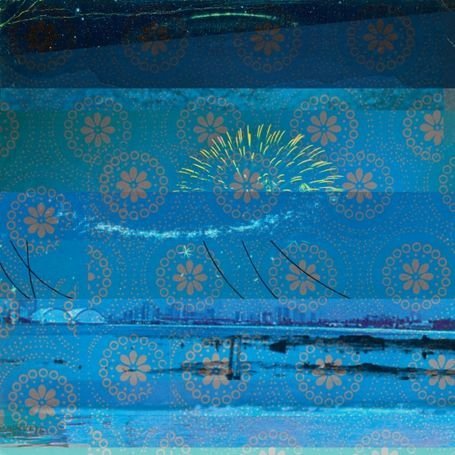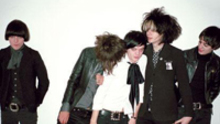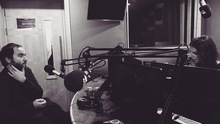Seems Dust Lane is something of a rebirth for Yann Tiersen. He’s signed to the electronic-leaning Mute (who, as an aside, have recently been emancipated from their parent company EMI); he’s eschewed his stereotypically French instrumentation and cinematic orchestration in favour of something that partly plays to his new home’s sonic preferences, and that’s partly more raw and uninhibited; and perhaps in a related move, he has for the first time in his career presented a studio album that’s entirely – both lyrically and titularly – in English. It’s only when you learn that Tiersen suffered the loss of both his mother and a close friend during the album’s recording, that it becomes a work inextricably linked with mortality.
The album opens amid this very territory with ‘Amy’. Vintage synthesizer sounds morph and buckle atop of one another, only to evolve into something euphoric when rhythmically punctuated acoustic guitars and a tambourine can be heard climbing the stairs, before a full carnival barges down the door, flattening all identifiable sorrow, and parades about the room. Maybe those synthesizers and their feeling of a sinking loss might be associated with Tiersen’s recent confrontations with death; the full band a counterintuitive celebration of life lived, to paraphrase a quote from Tiersen himself. Perhaps it’s a literal interpretation of that idea of rebirth? More likely, it’s both, and then some.
It’s a trick that seems to repeat itself from a more standoffish perspective, as well. In the aftermath of ‘Amy’ come three tracks that refuse to rise to the opener’s rapturous heights. ‘Dust Lane’, ‘Dark Stuff’ and ‘Palestine’ all assume a more sullen demeanor, brooding where their precursor reveled. But ‘Chapter Nineteen’ proves the tunnel that separates these two moral outlooks, and in its wake are a further three tracks which return to the upward looking mood seen at the beginning. It would be an injustice to do so, but Dust Lane could be boiled down to just a perpetual slide between glass-half-full and glass-half-empty. Amongst them all though, ‘Palestine’ ends up the moment that doesn’t quite sit right. It’s built around the idea of the word’s nine letters being chanted – sort of in a cheerleader kind of way - but with a demented cultish bent. Place this vague and unintelligible idea over a cyclical music cycle that has so much going on it feels cluttered and confused, and it soon becomes hard for the listener to get involved.
But then we uncover a masterstroke in the finale, ‘Fuck Me’. So obtusely named, it’s hard to deny that the song is there to be anticipated as an impassioned cry amongst quiet moral meditations. So it's a wonderful twist when it opens with guitar-plucked nursery rhyme – joined soon after by a timely melody that’s no more threatening than its accompaniment “I know you know, we are falling into, a deep oblivion.” Again, in the spirit of cycles and rebirth, it soon evolves into a celebratory jaunt, that same festival of colours and textures that we heard in the very beginning. It’s a testament to the energy and spirit behind the songwriting that towards the song’s close, the music transforms the lyrics “fuck me, fuck me, fuck me, fuck me/and make me come again” into an utterly heartwarming sentiment. Then, as a final nod towards symmetry, those sinking, sludgy synthesizers can be heard sneaking up through the mix throughout the final three-or-so minutes, before long, erasing any sign of life and vibrancy as if it never took place.
Maybe I’ve had too much fun looking into possible thematic threads that may or may not run through this record, but at the end of the day, Dust Lane isn’t musically breaking any new ground here – densely layered and orchestrated anthems aren’t anything we’ve not all heard before… but it will make you grin in a way Funeral never could.
-
8Sam Cleeve's Score

